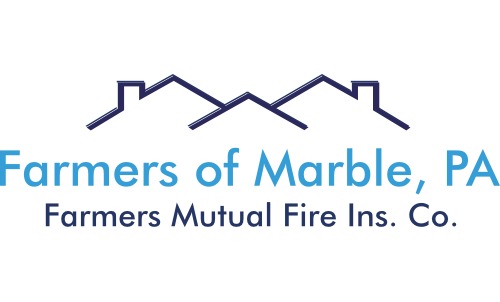Auto
Yes you should carry more coverage than what the state minimum is. State minimum coverages are not going to protect you properly in the event of a “bad” accident.
Pennsylvania state law is that the insurance follows the vehicle. So if you let someone driver your car, then the policy that covers that car will pay out for Bodily Injury and Property Damage, plus any physical damages to the vehicle if the accident is “At-Fault”.
No. Rental car coverage is only for covered losses to your car.
The answer is NO. Homeowners policies have an exclusion in them that does not provide coverage for motorized vehicles that require their own insurance. Your auto policy will cover your vehicle for fire if you have comprehensive coverage.
Comprehensive (Other than Collision)- covers named perils other than collision such as; fire, hail, vandalism, theft, flood and hitting an animal.
Collision – Means over turn of the vehicle or colliding with something such as a tree, building or pothole.
Commercial Insurance
Do you or your employees occasional drive a vehicle not owned by the business or the employee uses their own vehicle in the course of business activities? Then you should consider adding this coverage to your general liability insurance (if you do not have a business auto). If your employee has an accident driving his/her own car during the course of business and the employee’s auto insurance policy does not provide significant coverage, then your business can be held legally liable for property damage or bodily injury.
If you have mobile equipment (backhoe, tractor, crane, etc), your general liability policy will cover for bodily injury or property damage for use of the machinery on the insured premise or at a job site. However, you should consider having an inland marine policy to cover the machinery itself if it becomes damage.
Yes, you must be prepared for any losses that could occur in your business activities and that begins with the first day of your new business.
If your business suffers a covered loss, with business income coverage, you can be reimbursed for loss of income due to down time and extra expenses.
If you are ever audited, your insurance company will want proof that your sub-contractor had their own insurance coverage. A Certificate of Insurance will provide this proof. If you do not request these certificates your insurance company can charge you additional premium.
General
Vacant buildings are at a higher risk of having a loss to them. For this reason, insurers generally will write the coverage on a limited coverage form to reduce the risk of paying out on a claim. You will need to let the agent know the building is vacant and how long you think the building will be vacant and they will place coverage on it accordingly.
No, it does not. There is no connection between switching insurance companies and your credit score rating.
Our recommendation is that you should shop your insurance every few years to make sure that you are getting the proper coverage for premiums being paid.
A waiver of subrogation means that you are giving up the right for your insurer to go after restitution from a 3rd party that you are doing business with. This is often seen with contractors.
The first named insured has all rights to the policy, including being notified of any cancellations, making any changes to the policy as well as receiving any refunds due on the policy.
Homeowners
This endorsement provides coverage for water that backs up into the home through your drains, sewers or failed sump pump. If you do not have this coverage, your standard homeowners policy will not provide any coverage.
A standard homeowners policy will provide coverage for some business personal property, usually up to $2500 for on premise and $500 for off premise property. However, we suggest that you carry some type of liability insurance to cover your business activities.
There are multiple other factors that affect homeowners insurance premiums, including; how far you are from a fire station, geographical location of the home, if you have security alarms in place, and your insurance score.
You will need to provide information on the home such as; age of home, type of construction, number of stories, square footage, age of (roof, electric, plumbing and heating, as well as type of each). You will also be asked questions regarding liability issues – do you own a dog, swimming pool or trampoline.
Homeowners policies do not provide coverage for the homeowner that is injured on their own property. You would need to turn this into your medical insurance carrier.
Workers Compensation
Workers Compensation is in place to provide medical care and some other coverages for a worker that is hurt on the job in exchange, the worker gives up the right to sue the employer for these type of costs.









































